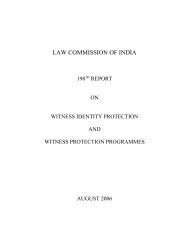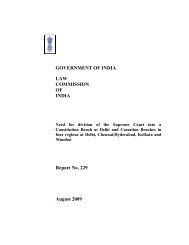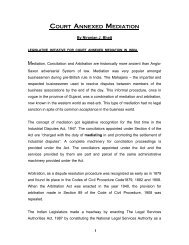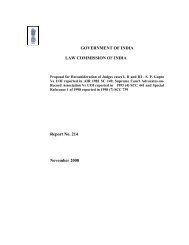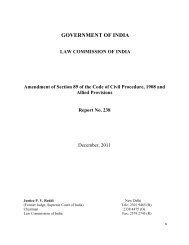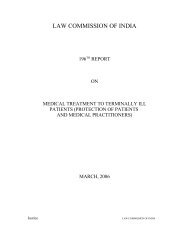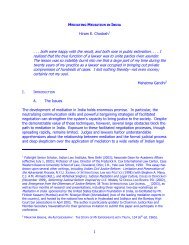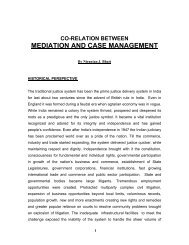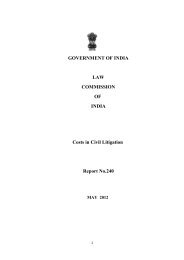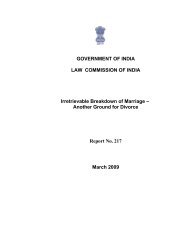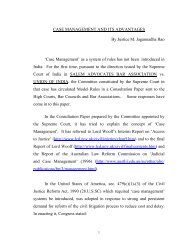The Legal Education - Law Commission of India
The Legal Education - Law Commission of India
The Legal Education - Law Commission of India
Create successful ePaper yourself
Turn your PDF publications into a flip-book with our unique Google optimized e-Paper software.
65formulated may be adopted by the High Courts concerned for givingeffect to sec. 89(2)(d).”In the light <strong>of</strong> the above judgment, it is clear that every case mustcompulsorily pass through a process where an attempt is made forsettlement by ADR procedures.6.4 <strong>The</strong> <strong>Commission</strong> is, therefore, <strong>of</strong> the view that ADR proceduresmust form and continue as a compulsory subject in all law schools and thatthere is urgent need for training lawyers, who are already practising in thecourts, in these ADR procedures.Courts must be recognized as centers for adjudication or settlement:6.5 According to age old and popular conception, courts wererecognized only as places where disputes are adjudicated by a competentjudge in a court established by the State. But, these age old concepts havenow undergone a complete transformation. According to Pr<strong>of</strong>. Frank EASander, today, the status <strong>of</strong> the court is different. Today, the court is also aplace which encourages settlement. Pr<strong>of</strong>. Sander’s vision was that the:“court was not simply a courthouse but a dispute resolution centrewhere the grievant, with the aid <strong>of</strong> a screening clerk, would bedirected to the process (or sequence <strong>of</strong> processes) most appropriateto a particular type <strong>of</strong> case” (Sander, Frank, EA ‘Varieties <strong>of</strong>Dispute processing’ 707 RD 111 quoted in ‘Dispute Resolution’ byGoldberg, Sander and Rogers, 3 rd Ed, 1999)



